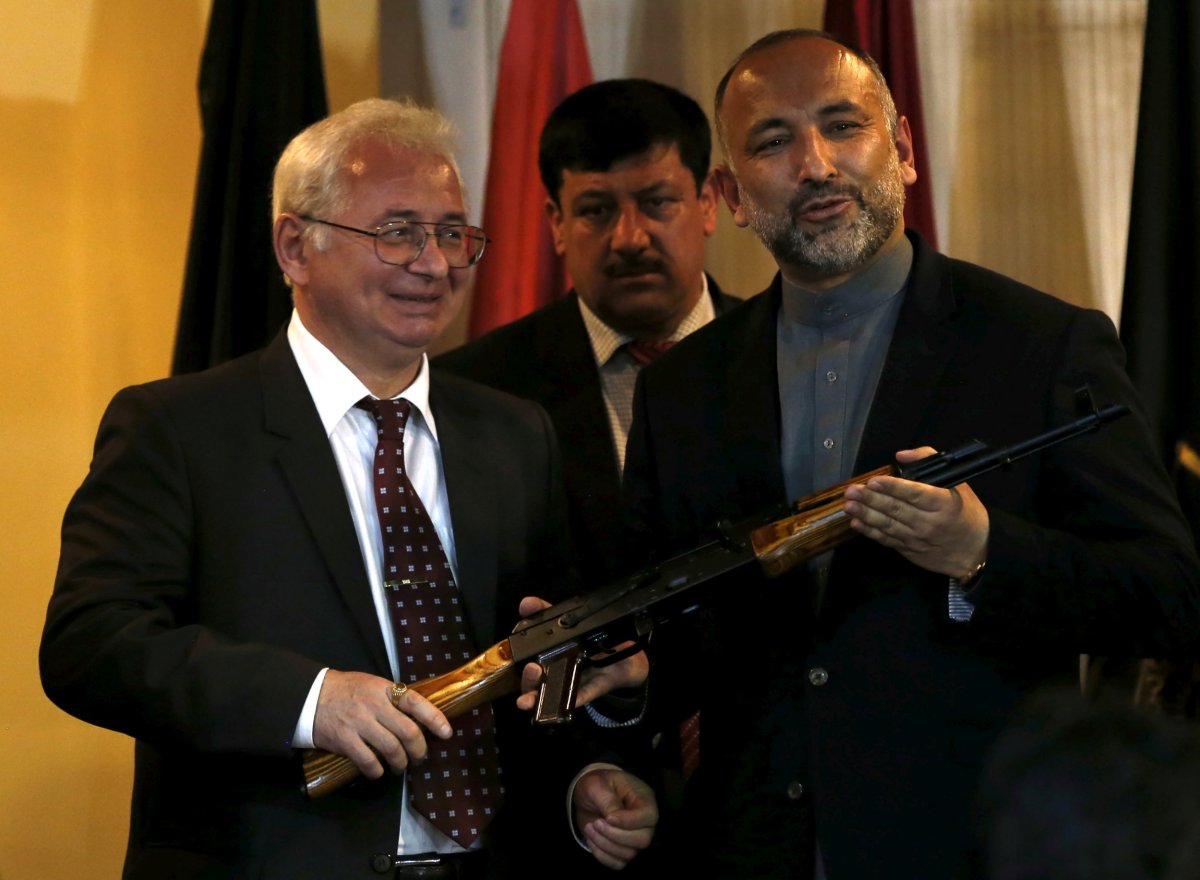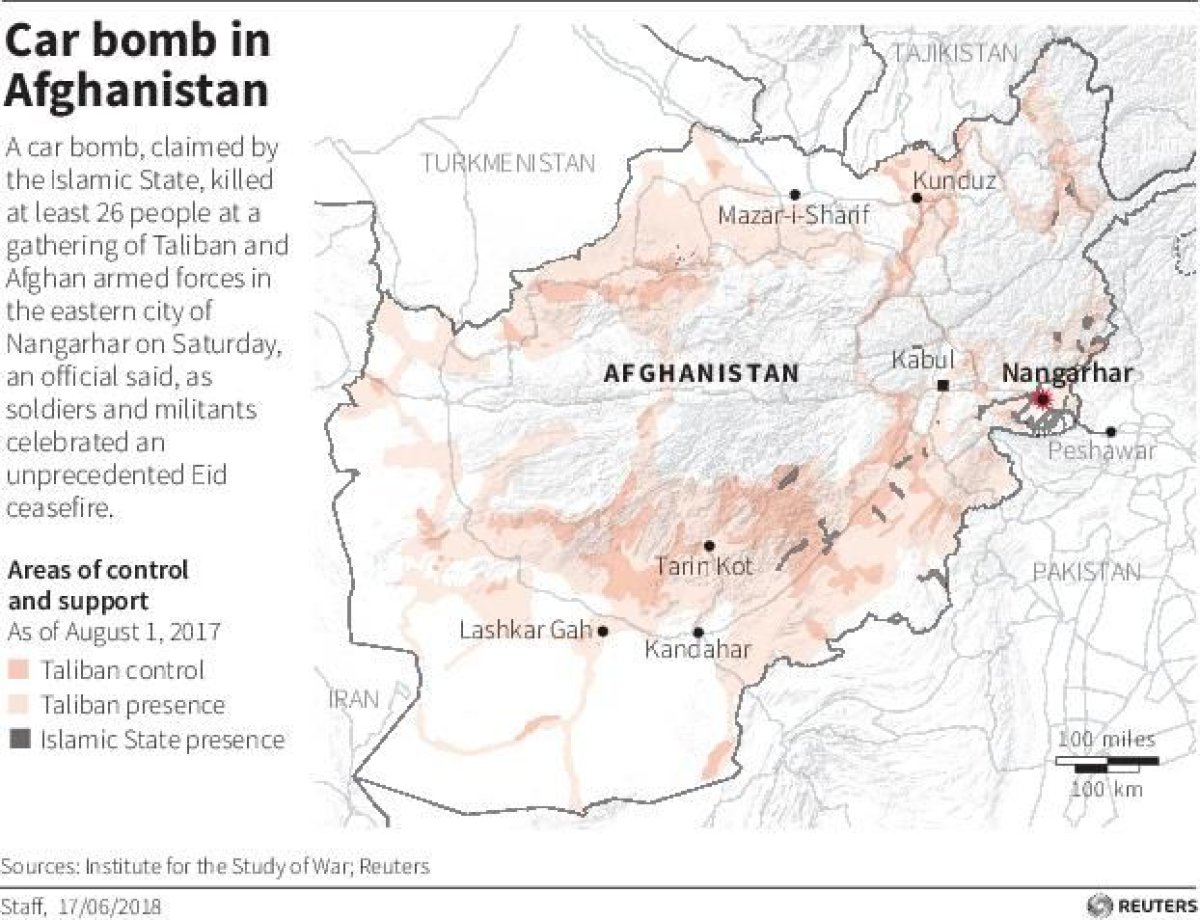Peace talks between the Afghan government and the Taliban Islamist militant group were set to take place in Moscow, after the nearly 17 years of U.S.-led war against the insurgents had failed to stabilize the country.
Last month, Russia first announced its intention to host such a dialogue, to which the Taliban agreed and Kabul ultimately declined. However, following reported consultations Thursday between Russian and a high-level Afghan delegation that included Deputy Foreign Minister Nasir Ahmad Andisha in Moscow, the latest attempt to resolve Afghanistan's longstanding crisis was officially on as of Friday, though no official date had been set.
"Kabul is determined to participate in the Moscow-hosted meeting. Now we are in the process of developing modalities for this participation. Currently, the main thing is not the date but the content, so this is the part that we are working on," Russia's special envoy to Afghanistan Zamir Kabulov told Izvestia newspaper on Friday.

Russia's involvement in Afghanistan dates back to at least the 19th century, when the Russian and British empires vied to conquer Central Asia. The Soviet Union then projected its influence on the region a century later to compete with the U.S. and, in 1978, Soviet forces entered Afghanistan following the murder of its communist, pro-Moscow President Nur Muhammad Taraki. As a loyalist government was formed, the U.S. also became involved in Afghanistan by funding anti-communist mujahideen rebels who ultimately expelled the Soviet Union after a decade-long conflict.
This led to further bloodshed, however, as the victorious insurgency devolved into infighting among multiple groups, allowing for the rise of the Taliban, an ultraconservative Sunni Muslim group that soon allied itself with the powerful global jihadi network of Al-Qaeda. The Taliban took over Kabul and much of the country, establishing the Islamic Emirate of Afghanistan, recognized by Saudi Arabia, Pakistan and the United Arab Emirates. Other world powers, including Russia and the U.S., backed the remaining anti-Taliban factions known as the Northern Alliance.
This was the climate there in 2001 when Al-Qaeda orchestrated the 9/11 attacks against the U.S., prompting a U.S.-led invasion in October of that year. The U.S. and partnered Western forces easily overthrew the Taliban-led government but have since struggled with an Islamist insurgency—that now includes the Islamic State militant group (ISIS) as well—and continues to stage deadly attacks nationwide, once again expanding its control of the country in spite of extensive U.S.-led coalition efforts.
Earlier this month, a member of the Afghan National Army turned his gun on the highest enlisted U.S. soldier supporting President Donald Trump's new adviser brigade, U.S. Army Command Sergeant Major Timothy Bolyard, killing him in one of the most notable "green-on-blue" attacks in the conflict's recent history. Shortly after, Secretary of State Mike Pompeo appointed Zalmay Khalilzad as special adviser on Afghanistan, saying his role would be to "get the Afghans and the Taliban to come to a reconciliation."

In recent years, Russia has sought to challenge U.S. military involvement abroad. Moscow's own, largely successful campaign to support Syrian President Bashar al-Assad against rebels and jihadis in the wake of a 2011 uprising has emboldened other leaders to seek Russian assistance. Russia has denied U.S. accusations that it covertly supports the Taliban, but it has increasingly offered to play a role in solving the seemingly intractable conflict in Afghanistan. While Russia has been critical of the U.S. role in Afghanistan, then-top U.S. commander in Afghanistan Army General John Nicholson said in March he would be open to working with Russia to help achieve peace there.
Days before the first planned Moscow conference on September 4, the Afghan government backed out, claiming that "the Taliban rejected the message of peace and direct negotiations." Moscow maintained efforts to bring Kabul back to the table, and Russian Ambassador to Afghanistan Alexander Mantytskiy sat down Wednesday with Afghan Deputy Minister of Political Affairs Hekmat Khalil Karzai for a meeting in which the Afghan Foreign Ministry said, "both sides discussed and exchanged views on the trip of the Afghan delegation to Moscow consultations, bilateral relations, and regional issues."
That delegation ultimately agreed to the Russia-hosted talks. One of its members, Mohammad Ehsan Taheri of Afghanistan's High Peace Council, told his country's local TOLO News that "Russia, as supreme force of the world and region, is now taking every step to raise the voice of the people of Afghanistan," calling Moscow a "moderator and mediator in the peace process of Afghanistan."
Uncommon Knowledge
Newsweek is committed to challenging conventional wisdom and finding connections in the search for common ground.
Newsweek is committed to challenging conventional wisdom and finding connections in the search for common ground.
About the writer
Based in his hometown of Staten Island, New York City, Tom O'Connor is an award-winning Senior Writer of Foreign Policy ... Read more
To read how Newsweek uses AI as a newsroom tool, Click here.








